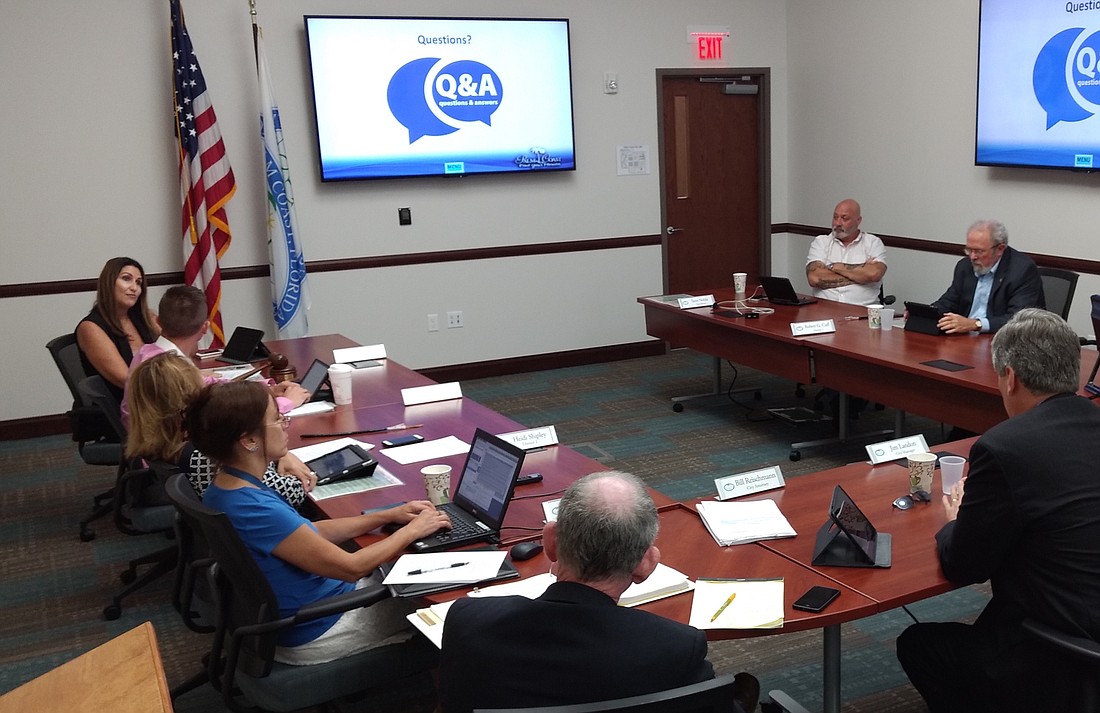- January 27, 2025
-
-
Loading

Loading

The state Legislature approved a bill in this session that will give voters a choice on the 2018 ballot: Should the homestead exemption be increased by another $25,000?
"Maybe you’ll get an individual, very minuscule tax break, but when this adds up … you’re talking about a substantial hit to our budget.”
Milissa Holland, mayor
Palm Coast Mayor Milissa Holland believes the voters will approve the measure. She said at the June 13 city workshop: “They’ll say, ‘Wow, this is another tax break.’ The irony is … yes, maybe you’ll get an individual, very minuscule tax break, but when this adds up … you’re talking about a substantial hit to our budget.”
Finance Director Chris Quinn presented the potential impact on the city’s budget and said that if the exemption passes in 2018, the city would have to make up the difference by raising taxes or charging more in user fees — or cutting back on services.
The city currently has the second-lowest tax rate out of the 14 Florida cities with population of 70,000 to 100,000.
City Manager Jim Landon agreed that the city would see a significant budget impact.
“It’s shifting the tax break from single-family homesteaded property to commercial and rental property,” he said.
That could cause rental prices, which are already up about $300 to $400 in the past few years, to continue to rise.
“It makes our rental situation even worse,” said Bob Cuff, City Council member.
In his 20 years of lobbying for local governments, Doug Bell has never seen a session quite like this one, he told the City Council at the June 13 workshop. The “philosophical position” of the House leadership seemed to be that the state favored rules that would pre-empt local authority.
“It was open season on local governments,” Bell said. One example was an attempt to stop local governments from regulating businesses; that bill failed but did gain some surprising traction, he said.
State legislators often lack knowledge about local impacts of their decisions, Holland said, and that causes “a very large disconnect.” One reason for that, she suggested, is: “You don’t see a lot of legislators starting out in local government.”
She suggested that the city meet with state representatives earlier in the process next time to make sure they know how certain proposed bills will impact the city.
After Hurricane Matthew, the city of Palm Coast had trouble getting power to sewer pumps, which resulted in thousands of gallons of overflow at several pump stations in residential neighborhoods. The state denied the city’s request to pay for generators to help solve that problem in the future. The state also denied a request for funding for lining of pipes and manhole covers. Bell said there were $730 million of requests for water projects, and only $54 million of projects were approved.
The beginning of this year’s legislative session was characterized by animosity between the House and Senate, as well as House Speaker Richard Corcoran and Gov. Rick Scott, particularly regarding funding for attracting tourists (Visit Florida) and recruiting businesses (Enterprise Florida) to come to the state. But after Scott’s list of vetoes came out and after a special session, many of Scott’s wishes came true: Visit Florida was restored, and although Enterprise Florida was cut, it was essentially replaced with $85 million of grants that will be used for economic development.